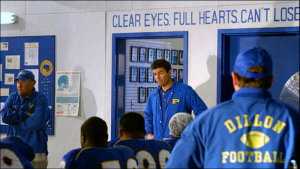Did you ever have one of those life moments when you observe someone — perhaps a colleague — doing something in a manner so gobsmackingly competent, so extraordinary, so mindblowingly awesome, that it reduces you to a puddle of “oh my gosh, what do I think I’m doing here, I’m not worthy”? Well, I have. And one of those moments happened this past week. I shouldn’t admit it, but learning how this person managed a triple-headed crisis with absolute grace and perfection — the workplace equivalent of Indiana Jones rolling under a descending wall, dodging poison darts, and swinging from a rope to land to safety — reduced me to questioning my place in the universe. Am I the only one who has self-conversations like, “Should I really be doing this?” Well, I can’t be the only one because there’s an actual name for it in my field: impostor syndrome. Caltech defines it as “…a collection of feelings of inadequacy that persist even in face of information that indicates that the opposite is true. It is experienced internally as chronic self-doubt, and feelings of intellectual fraudulence.”
And mostly, I don’t have it. I love this work and I generally feel competent and successful. But in that moment, I could feel myself collapsing into a full-blown impostor syndrome attack. So I did what I do — processed it, took a long walk, talked it over (without details) with a trusted friend, and continued to fret a bit.
And then yesterday I was watching an old episode of “Friday Night Lights,” and if you’ve never seen this Texas drama of love and football, you need to stop reading this blog post now and go stream it on Netflix. In this particular story, the long-time team quarterback is replaced by a new, young, talented up-and-comer, and this sends the replaced Q1 into a tailspin of self-pity and self-loathing. And as I was watching it, I said to Neal with all the passion and outrage of a person who has All the Answers, “This kid needs to be told that there is ALWAYS going to be someone who can do some things better than you can, but that doesn’t mean you shouldn’t continue to strive to be excellent at what YOU do best!”
And then I stopped dead in my tracks. Yes, that fictional kid needs to know that. And this real live person needs to know that. It was one of those “do you hear yourself?” moments that hits you over the head with the full force of its raw truth.
And, really, it shouldn’t surprise me that the most important lessons I learned this week was one that I learned from observing and processing someone else’s pain (even if that someone was a television character). After all, one of the reasons I love my counseling work so completely is that I glean more insights about myself by engaging with my clients than I’ve ever learned on my own. It’s part of what makes this the best job on earth.

